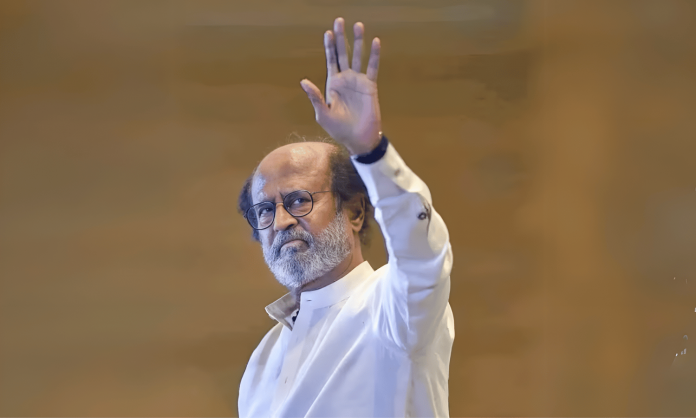Born Shivaji Rao Gaekwad, the 73-year-old Rajinikanth stands as one of the most popular actors to emerge from the Indian film industry. Unlike his Bollywood counterpart, Amitabh Bachchan, who has transitioned into character roles, Rajinikanth continues to command lead roles in his films.
His fame extends well beyond India, resonating deeply within the global Indian diaspora. Reflecting on his journey at a public event in 1992, Rajinikanth shared insights into his early struggles and the hurdles he faced before entering showbiz. His debut in 1975 with the Tamil drama “Apoorva Raagangal” at the age of 25 marked the beginning of a remarkable career. Recalling his formative years, the megastar candidly discussed his humble beginnings, having taken on jobs such as carpentry, coolie work, and bus conductor before venturing into acting.
“I did all that because I was born into a poor family. I knew poverty not by seeing or hearing about it but by experiencing it,” Rajinikanth revealed. Despite facing adversity, he harboured a fierce determination to rise above his circumstances. He candidly admitted, “I have never feared anything in my life, even when I was young. But once I was very scared and I decided to commit suicide.”
A pivotal moment shifted his trajectory when he encountered a spiritual figure that altered his perspective. “That’s when I saw a painting of a godman and people were doing puja. Seeing him, I decided to push the decision to another day,” he recalled. A transformative dream followed that night, where the godman appeared to him, setting him on a path of prayer and fasting. “That night I had a dream where the saint appeared with a white beard and he was sitting on the other side of a river. He asked me to come to him and I didn’t swim but ran to him,” Rajinikanth recounted. The next day, upon inquiry, he discovered the godman was Sri Raghavendra, further deepening his spiritual resolve.
Reflecting on his transition into cinema, Rajinikanth credited his journey to pivotal moments like joining the film institute and catching the eye of Balachander sir. “Then I became a bus conductor, then joined the film institute, was then identified by Balachander sir, and became a star,” he acknowledged, tracing the milestones that shaped his career. A poignant visit to Mantralaayam reinforced his belief in destiny when he encountered the same river from his dream. “So, he and the people of Tamil Nadu had made me a star, and that’s how a conductor is standing before you in a suit,” Rajinikanth expresses gratitude for the path his life had taken.
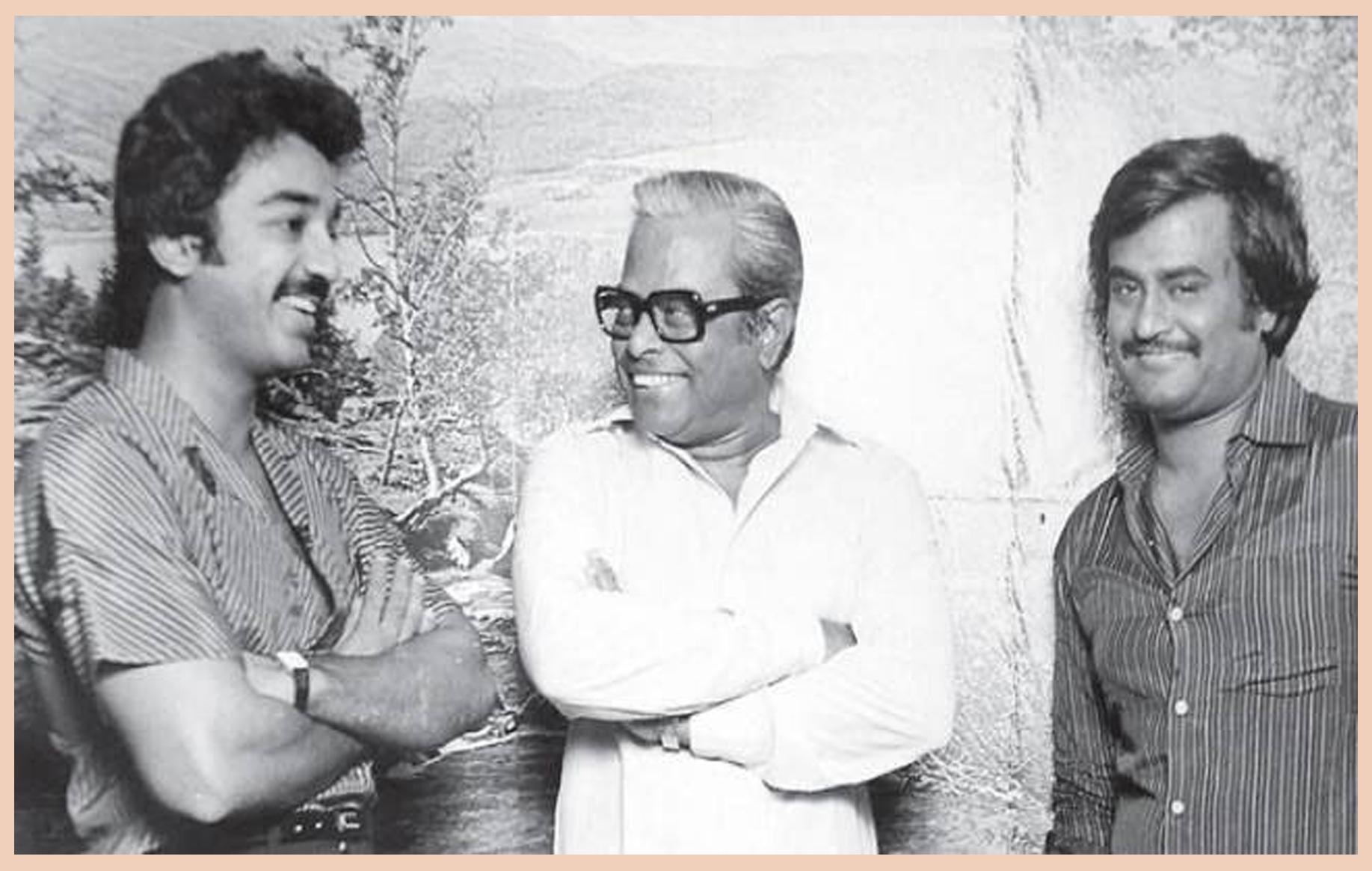
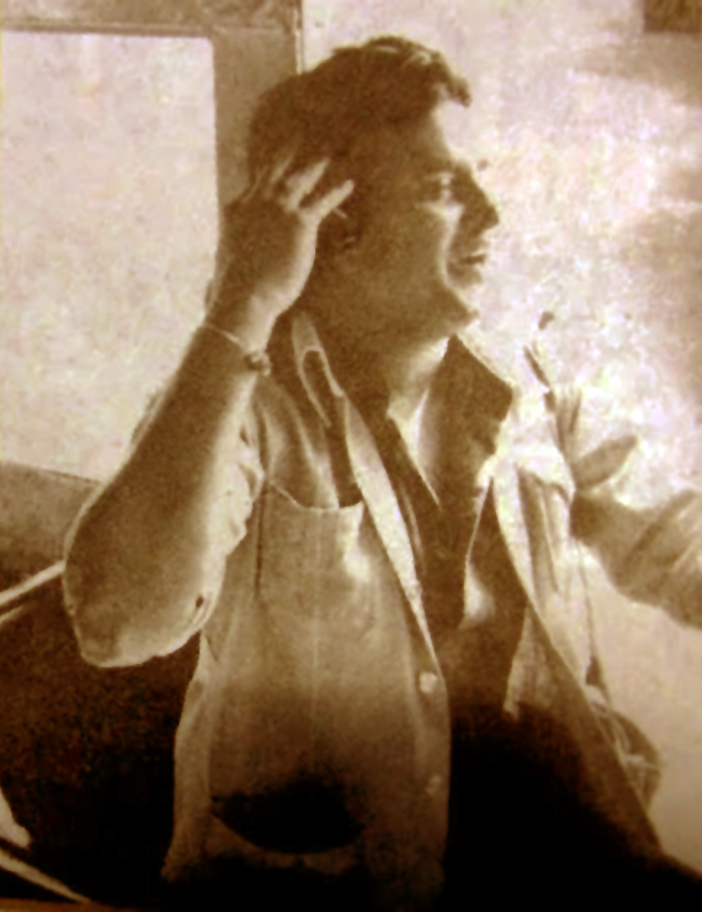
Rajinikanth adds that the director is the most important person in the film industry. “The producer is like a father and the director is like a mother. Often I choose films based on the subject and a director. There are a lot of times when I do not sign a film for months together as I do not get a good enough script. It is a director who makes script work and helps the artists as well as the other technicians. If you look at the legendary Sivaji Ganesan, he has had filmmakers like A BhimSingh, AP Nagarajan, P Madhavan and A Thirulogachander making films with him. If he did not have these kinds of makers with him, he would not have ever got the title of Nadigar Thilagam. Ditto with MGR Sir, but then he was more than what a director even was. Even in my career it is the directors who have shaped my career and made me who I am. I started shooting for films around 50 years ago and I have to admit that the directors are the ones who have given my career an impetus and a direction,” says Rajinikanth.
Rajini also mentions how directors have clearly shaped his career.
“It started with SP Muthuraman sir and then it was Mahendran Sir who changed the way I was doing my films and roles. It was Raj Shekhar who gave me a variety of characters. Then there was Siresh Krishna who completely changed the dimension when it comes to me being an actor. Then there were the filmmakers like P Vasu, KS Ravikumar, Shankar, Ranjith, Kartik Subbaraj and then Nelson. They all showed Rajinikanth in the movies like how they wanted to show,” he says.
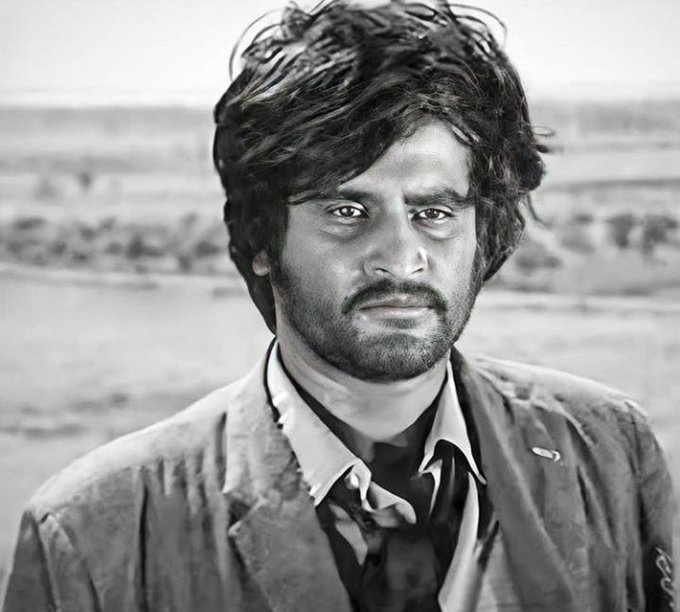
Having said that, Rajinikanth says that there are many makers who came to him with stories and ideas and ended up only disappointing him. “The fact is I heard many stories, but then some of them were like the ones I had played earlier and there was nothing new in the stories. I was also being portrayed in a similar manner. Some of these subjects sounded so huge and grand that I would often wonder if I could entrust the said maker with a film of that scale. Sometimes one does hear a wonderful one line from a filmmaker and when he is sent to develop the movie, he comes back with a really bad version of the script which is so different from what he had even narrated in the first place,” he laments.
Having said that, refusing a filmmaker and not doing his film is something that the Thalaivar dreads. “It is not easy. When a director says that he wants to narrate a subject to me, he would have told his family and friends that he was going to tell me a script. So when I decline the same, imagine what kind of a disappointment it would be for them as they would have come with such great enthusiasm. I feel very bad refusing them and their stories. So at one point of time, I even stopped hearing scripts,” he says, talking about his long break before signing on Jailer by Nelson.

Rajini has always believed in self-deprecating humour bringing laughter as one realises that a star of his nature can be so humble. One recollects how he spoke once of an incident when a rich businessman from Rajasthan wondered how he could be a hero in the film Robot opposite Aishwarya Rai after looking at his simple demeanour, receding hairline and white hair. But that is how Rajini is. He even made fun of himself as to how he had only one dance step and two close ups in his song sequence with actress Tamanaah in Jailer where she was given the entire footage. “The director Nelson and choreographer Jani Master shot 5 and a half days with her and sent me packing and did not even let me talk to Tamannaah,” he chuckles in jest.
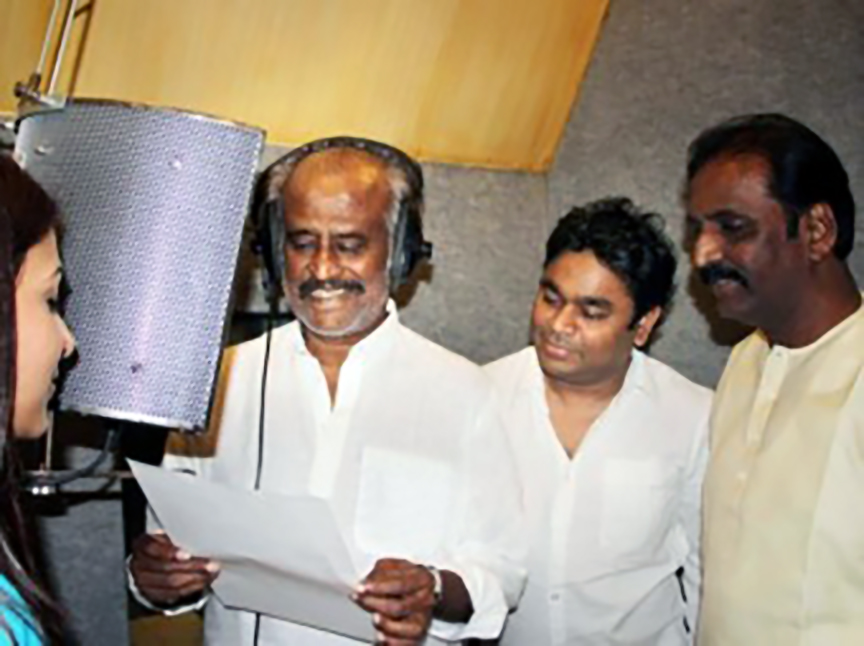
The biggest superstar of India, however says that he did not like it when one of his financers Kalaipuli S Thanu wanted to put his moniker as Superstar after the film Bairavi released. “It was in 1977/78 and he said that he wanted to put Superstar in the titles. I didn’t agree and he asked me if I was scared. I told him that I am scared of only two people. One is God because he is always supreme and is the biggest of them all and I fear good people because they are so good that one should not do anything bad to them or else one would face their wrath, The curse of a good man can destroy anyone. My only issue was that Kamal Haasan was really a big star back then and even the great Sivaji Ganesan was also working and hence I was hesitant. How could I dare to be called a superstar?” asks Rajini about Thanu who was the first person to create a 35 feet cut out of Rajini outside a movie theatre.
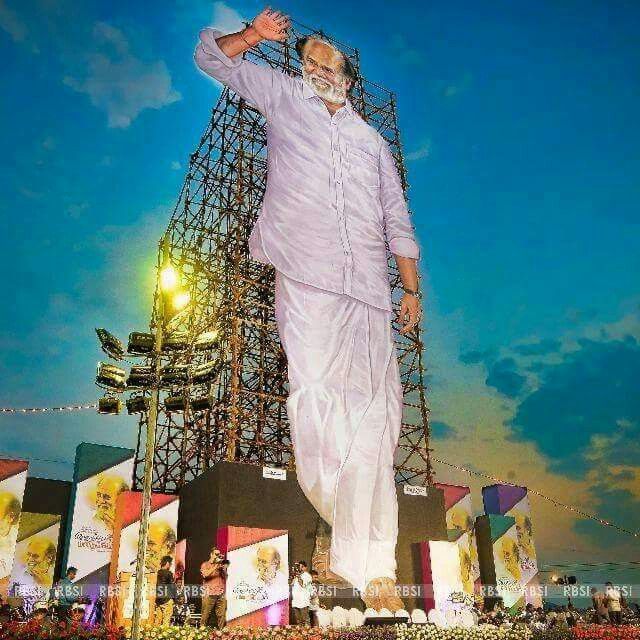
Caption: Rajini fans have long been obsessed with his cut-outs
Rajini has never forgotten his roots and only moved from a self-driven fiat to a Honda City and only sat in a BMW when his ex-son-in-law Dhanush gifted him with one. In fact, Rajini avoids vanity vans too and uses the make-up room on the sets eating food served to the other cast and crew when he’s shooting out of Chennai. When in Chennai, he eats food that comes from his home.
Despite all that, he did get his share of hate. “I did get that from some quarters. But there was no media or social media back then. Youngsters today won’t know what happened in the 70s. Senior citizens. There was so much hate, so much opposition and so much fire against me, but I managed to overcome it and become a plant which has now been nurtured and protected by God and my Godlike fans,” he smiles, giving the credit where it is due.
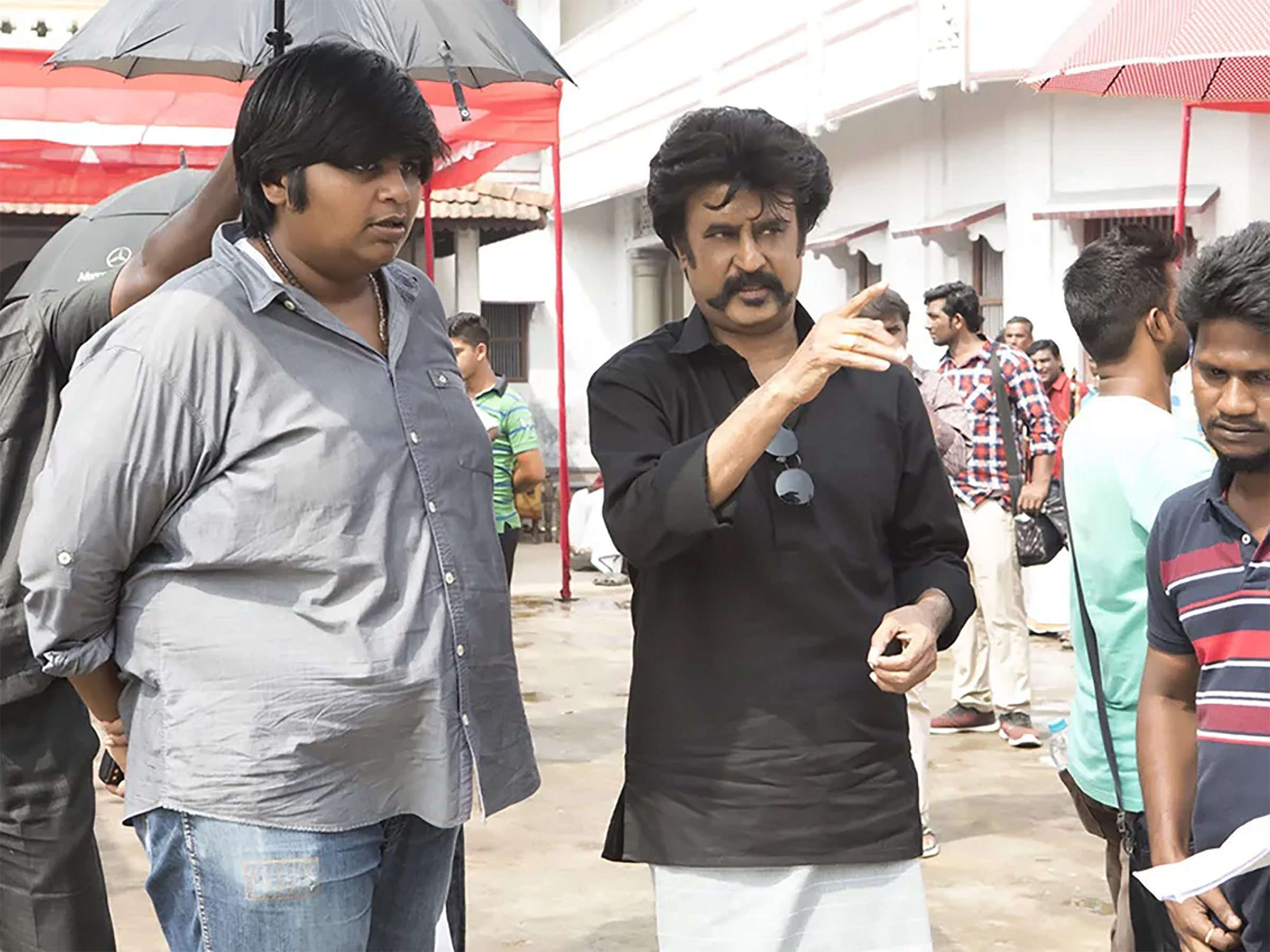
Rajini has been known for his stylish ploys, like tossing up the cigarette, doing things in slow motion among other gimmicks. “But it was not the gimmicks that gave me popularity. I did some really sensitive films back then and that brought the mothers into the theatres which is like letting elephants loose in the sugarcane fields and they stood like a fortress for me. Films like Aarilirindhu Aruvahu Varai, Mullum Malarum, Bhuvana Oru Kelvikuri were films that changed the course of my career and doused the hate and kept the fire in me burning which is evident even today,” he says.
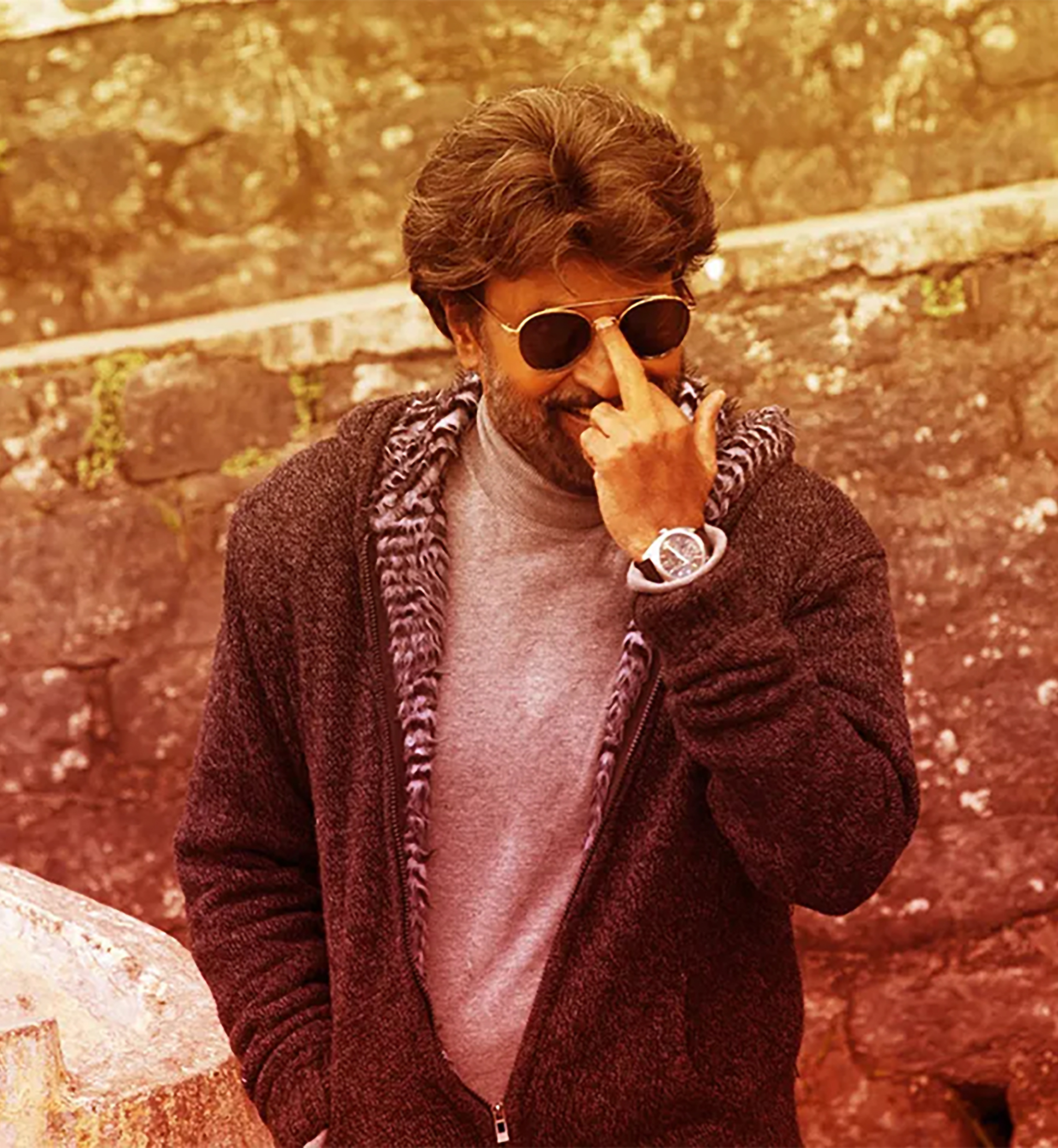
The man with his wealth of experience has a word of advice for the younger generation. “Everyone will face hate today in all fields, schools, colleges and the workplace. But one should not be bothered. Crows are the real troublemakers among birds who keep poking at other birds. But when they try it with the eagles, it keeps soaring higher till the time that the crow cannot fly upwards. That’s what we need to do, fly higher so that the crows are unable to poke us. Work and that will silence others. Being silent to the barbs is the wisest thing to do. I hope the media and the social media doesn’t try to say that I called someone a crow and someone else an eagle,” he guffaws over his words of wisdom.

Caption: Aarilirindhu was one of the films that change the course of Rajini’s career
Moving on to cinema, the actor says that there was once a time when Tamil cinema stood right behind Hindi movies. But now the scenario has changed. “See what KGF and KGF 2 has done to Kannada Cinema and taken it so big. Films like Baahubali, RRR and Pushpa have changed the way the world looks at Telugu cinema,” signs off Rajini.
Thalaiva Through The Years
Rajinikanth’s career began in the early 1970s, and his filmography is a whirlwind of action, drama, and larger-than-life characters. He made his Bollywood debut in 1983 with a top-grossing film, then quickly established himself in Tamil cinema with the award-winning “Nallavanukku Nallavan” in 1984.
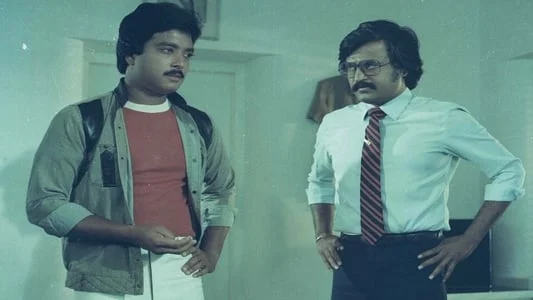
Image courtesy: entertainment.ie
The late 1980s saw him churning out hit after hit in both Tamil and Hindi, from “Naan Sigappu Manithan” to “ChaalBaaz.” But it was Mani Ratnam’s “Thalapathi” in 1991 that brought him critical acclaim.
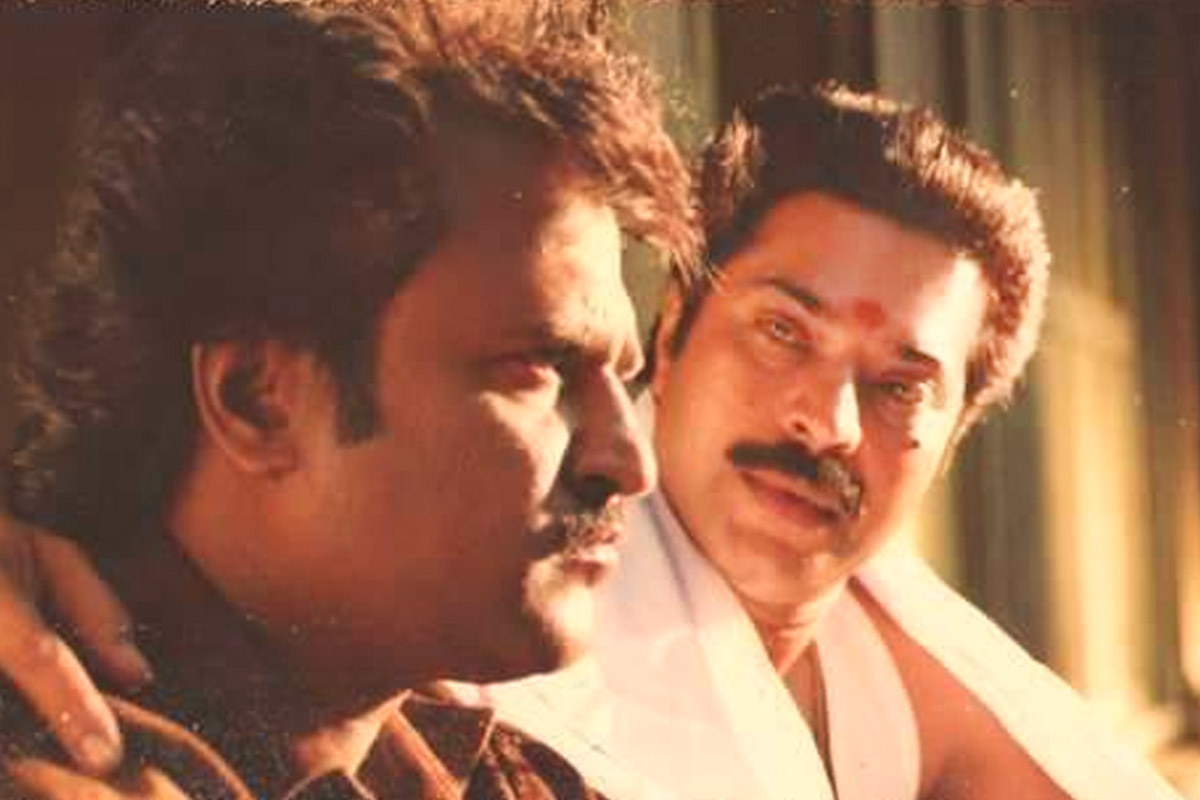
The following years were a golden age, with commercially successful films like “Annaamalai,” “Mannan,” and “Muthu” solidifying his superstar status.
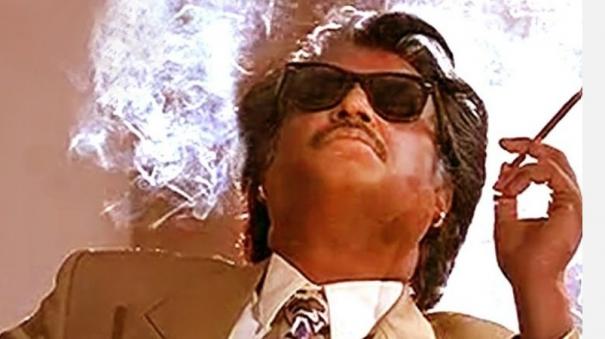
Image courtesy: hindutamil.in
He even tried his hand at screenwriting with “Valli” in 1993. Suresh Krissna’s “Baashha” in 1995 became a landmark film, turning Rajinikanth into a demi-god for Tamil audiences. He has continued to act ever since, with recent films like “Kabali” and “2.0” proving his enduring popularity. His next film will be Coolie.
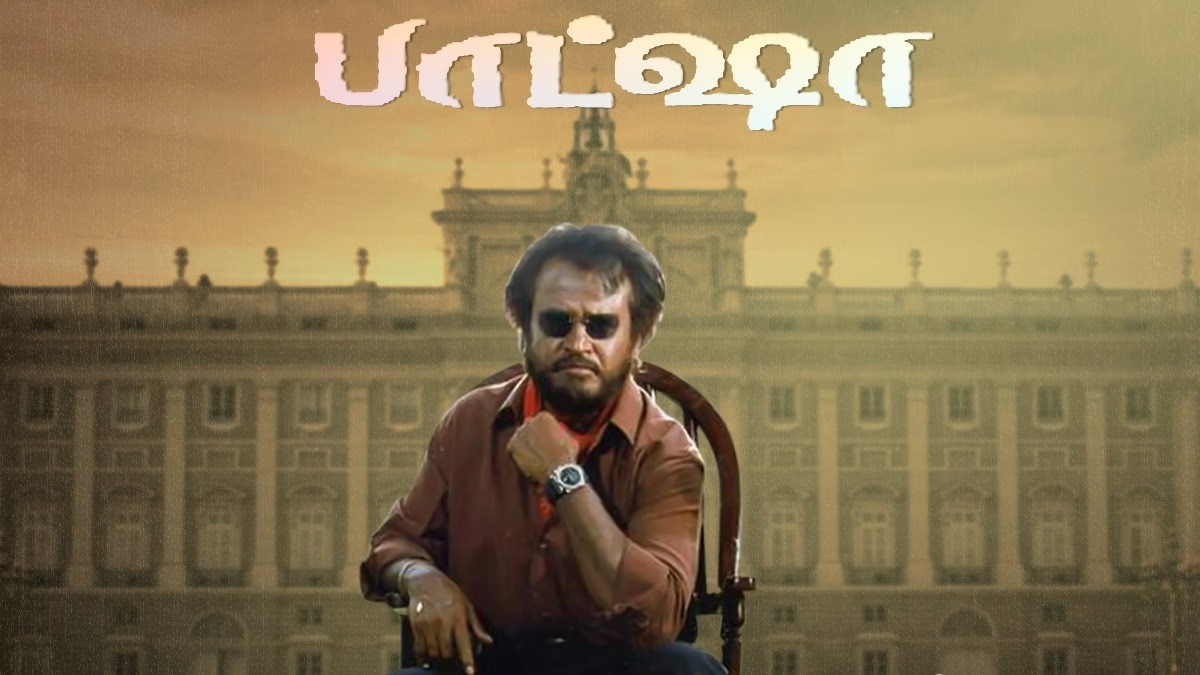
Top 10 Rajinikanth Jokes
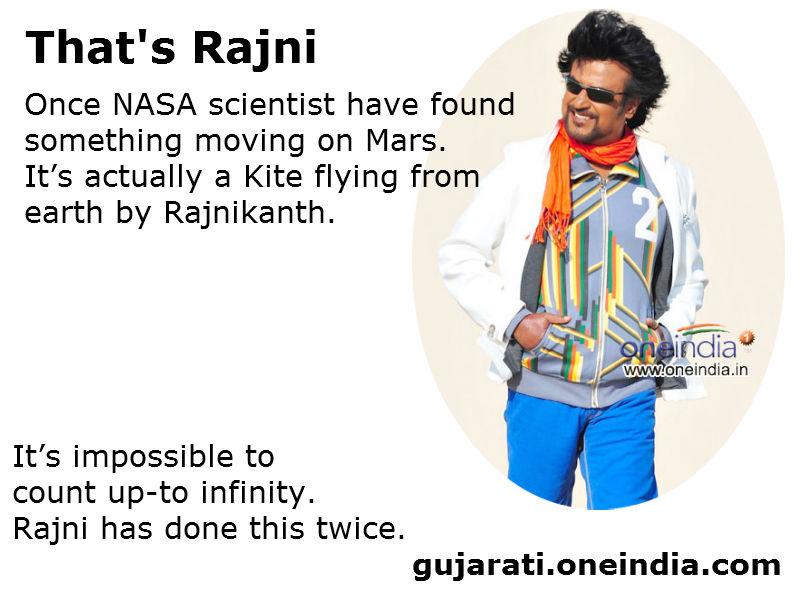
- Rajinikanth doesn’t wear a watch. Time waits for him.
- Rajinikanth has already been to Mars, that’s why there are no signs of life there.
- Rajinikanth killed the Dead Sea. (It was very much alive before he arrived)
- When Rajinikanth does push-ups, he isn’t lifting himself up. He’s pushing the earth down.
- There is no such thing as evolution, it’s just a list of creatures that Rajinikanth allowed to live.
- Rajinikanth can divide by zero. The answer? Whatever he wants it to be.
- Google doesn’t fear Skynet, they fear Rajinikanth accidentally hitting the search button.
- If you spell “Rajinikanth” wrong on Google, it doesn’t say “Did you mean Rajinikanth?” It simply replies, “Run while you still have the chance.”
- Rajinikanth can sing a lullaby so powerful, it can put the world to sleep. (Except maybe himself)
- Tears don’t come out of Rajinikanth’s eyes. Victories do.



